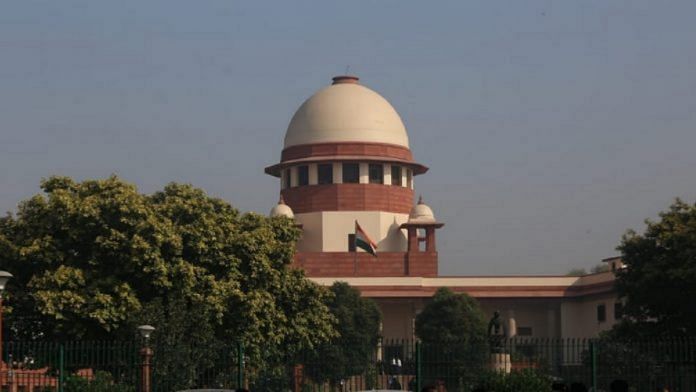New Delhi: State Consumer Commissions in only four of 28 states and just one Union Territory out of eight are working at full strength.
Commissions of 27 states do not have the minimum prescribed members — four, according to the Consumer Protection Act 2019. Only six states — Arunachal Pradesh, Gujarat, Kerala, Maharashtra, Rajasthan and West Bengal — comply with this provision.
These “disturbing” findings of the lack of manpower in State Consumer Dispute Redressal Commissions (SCDRC) are part of a status report submitted to the Supreme Court last week in a matter related to appointments of members to district consumer courts, state consumer commissions, and the National Consumer District Redressal Commission (NCDRC).
The matter is being heard by a bench led by Justice Sanjay Kishan Kaul. The bench took suo motu cognisance of vacancies in consumer dispute bodies and the failure of the Centre and the states in filling them.
Another key finding is that only three states have reported no vacancy in their district commissions. In all, 514 out of 990 posts are vacant in these bodies and 89 more are likely to fall vacant in the next six months, the report submits.
Taking note of the report, the SC bench has set an eight-week deadline for all states to fill vacancies in consumer courts at state and district levels. A similar timeline was also fixed for the Centre to appoint members to the NCDRC.
Presenting consolidated data to the court, senior advocate Gopal Sankaranarayanan and advocate Aditya Narain said that 72 posts were vacant across state commissions and eight bodies were functioning without presidents.
Terming the situation as “completely unacceptable,” the court said it would summon the chief secretary of the states in case “the job is not complete”.
Also read: SC tells parties to publish candidates’ criminal records, directs EC to monitor compliance
States yet to frame rules under the new consumer law
Consumer courts were established under the Consumer Protection Act 1986 to protect consumer interests as well as to deal with disputes arising between consumers and sellers.
The three-tier grievance redressal mechanism was established to provide speedy resolution to disputes. It was also meant to give consumers agency and was also a less expensive option as it allows consumers to appear in person and argue the case.
In 2019, the law was amended to expand the definition of a “consumer”. It even enhanced the pecuniary jurisdiction of consumer courts — a district forum can now decide a dispute upto Rs 1 crore, the upper limit was Rs 20 lakh earlier — while a state commission’s monetary jurisdiction has been revised to Rs 10 crore from Rs 1 crore.
Since the new law, the national commission has the authority to hear cases where consumers demand more than Rs 10 crore as costs or compensation.
More significantly, the new law aimed to bring in a regime to make these redressal bodies function better.
An advocate who is a member of the amicus team explained that under the new law each state is supposed to make its own rules regarding appointments of members.
Vacancies should be advertised six months before they arise, she said, adding that “the objective is to avoid any lag in making appointments”.
However, the data collated by Sankaranarayanan and Narain shows that 18 states/union territories have not yet framed rules under the new law for salaries, allowances, and other terms of conditions of service of the President and Members of the State Commission.
Furthermore, 10 states/Union Territories have not even set up selection committees to recommend the appointments.
According to the new law, states were required to notify posts for one president and a minimum of four members for the state commission, which only 19 states have done so far.
(Edited by Paramita Ghosh)
Also read: 2 Kerala lawyers set to take oath as judges, 3 yrs after HC collegium nod for elevation



